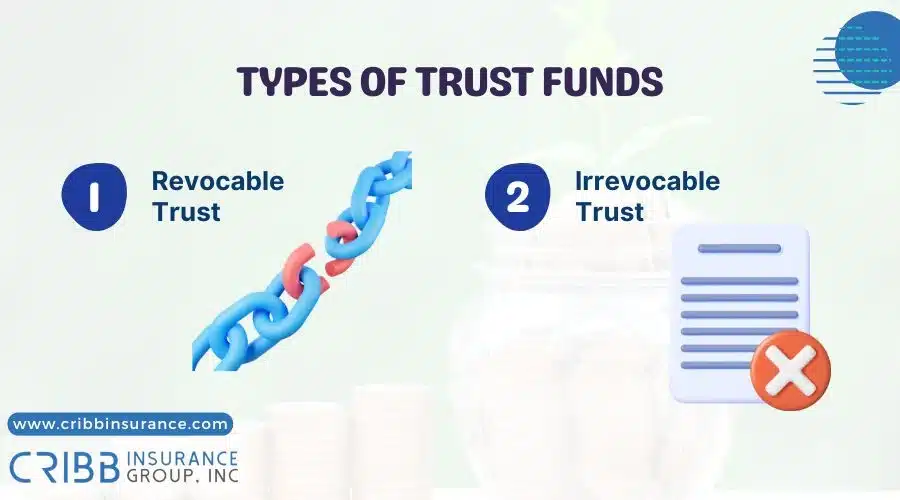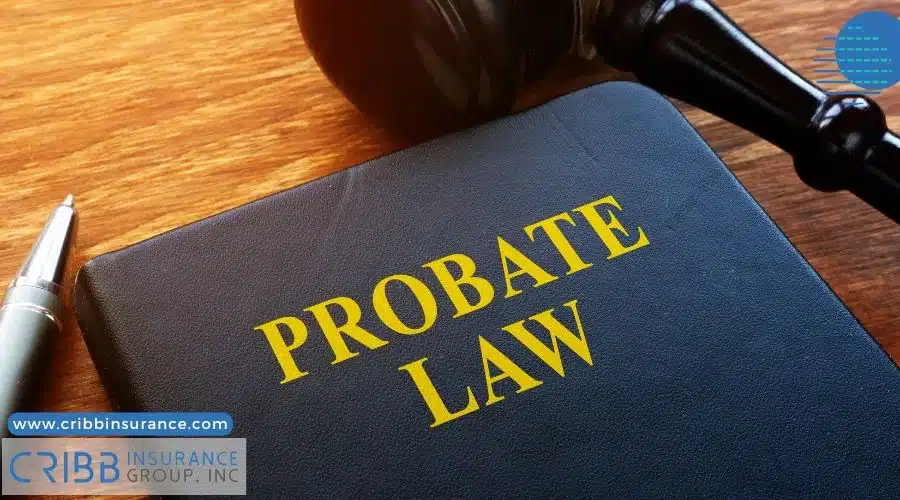A trust fund is a legal tool used to manage and protect assets for beneficiaries. While trust funds are often associated with the wealthy, they benefit people from all financial backgrounds. If you’ve ever wondered what is a trust fund? or how does a trust fund work? this article covers everything you need to know. We will explain the different types of trust funds, how they function, and why they might be a smart option for you or your family.

What is a Trust Fund and How Does It Work
A trust fund holds assets such as money, real estate, or other valuable items for a person or organization. Setting up a trust fund can ensure that your assets are distributed according to your wishes, either during your lifetime or after you pass away. Understanding what a trust fund is and how it works is essential for effective estate planning and asset protection.
Definition of a Trust Fund
A trust fund is an arrangement in which one party, known as the grantor, transfers assets into the trust. A trustee then manages these assets for the benefit of the beneficiary or beneficiaries. The trust fund can include various property types, such as cash, stocks, real estate, or other valuable items.
Trust funds are set up with clear instructions on how and when the assets will be distributed. The trustee, often a trusted family member or a financial institution, ensures these instructions are followed. Trusts offer the grantor control over their assets and provide beneficiaries with financial protection.
Key Components of a Trust Fund
A trust fund has several key roles and elements essential for its proper function. Each of these components plays a specific role in managing the trust and ensuring its purpose is fulfilled:
- Grantor: The person who establishes the trust fund and places assets into it. They set the terms for how the trust is managed and who benefits from it.
- Trustee: The individual or institution responsible for managing the trust’s assets. They have a fiduciary duty to act in the best interest of the beneficiaries.
- Beneficiary: The person or entity that benefits from the trust, such as income, property, or other assets as outlined in the trust’s terms.
By understanding these components, it becomes clearer how a trust fund operates and how it can serve different purposes, from ensuring long-term financial security to protecting assets from creditors.
Types of Trust Funds You Should Know About
There are various types of trust funds, each designed to serve different purposes and provide specific benefits. Understanding the distinctions between them can help you determine which type of trust is right for your situation.

Revocable and Irrevocable Trusts Explained
When it comes to trust funds, they generally fall into two main categories: revocable and irrevocable trusts. Each has its own rules and benefits:
- Revocable Trust: This type of trust allows the grantor to retain control over the assets during their lifetime. The grantor can modify or dissolve the trust at any time. Revocable trusts are often used to avoid probate and maintain privacy, but they do not protect the assets from creditors or reduce estate taxes.
- Irrevocable Trust: Once established, an irrevocable trust cannot be easily altered or dissolved. The grantor relinquishes ownership and control over the assets placed in the trust. This type of trust offers greater protection from creditors and can help reduce estate taxes. However, the trade-off is the loss of control over the assets.
Choosing between a revocable and irrevocable trust depends on the level of control you wish to maintain and your financial goals.
Specialized Trusts for Unique Needs
In addition to revocable and irrevocable trusts, there are various specialized trust funds designed for specific purposes. These trusts provide targeted solutions for different financial or personal situations:
- Charitable Trust: Set up to benefit a charitable organization or cause, this type of trust allows the grantor to donate assets while receiving tax benefits. It can provide income to the grantor or beneficiaries before transferring the remaining assets to the charity.
- Special Needs Trust: Designed for individuals with disabilities, this trust allows the beneficiary to receive financial support without affecting their eligibility for government assistance programs. It ensures the beneficiary’s long-term care without disqualifying them from benefits.
- Educational Trust: This type of trust fund is specifically created to cover the beneficiary’s educational expenses. It can effectively ensure that funds are available for tuition, books, or other education-related costs.
- Generation-Skipping Trust: This trust allows the assets to be passed down to grandchildren or even further generations, bypassing the grantor’s children. It helps reduce the impact of estate taxes on the inheritance.
These specialized trusts address unique situations, offering tailored solutions to meet specific financial and personal goals.
Benefits of Setting Up a Trust Fund
Setting up a trust fund offers several advantages, including simplifying estate planning and providing long-term asset protection. Whether you want to avoid legal complications or safeguard your wealth, trust funds offer a range of benefits that make them an effective financial tool.

Avoiding Probate and Minimizing Taxes
One of the major benefits of establishing a trust fund is the ability to avoid probate, which is the legal process of distributing assets after someone passes away. Probate can be lengthy, expensive, and open to public scrutiny. With a trust fund, you can bypass this process and ensure your assets are transferred to your beneficiaries quickly and privately.
In addition to avoiding probate, certain types of trusts, such as irrevocable trusts, can help minimize estate taxes. Since assets placed in an irrevocable trust are no longer considered part of the grantor’s estate, they are not subject to estate taxes upon death. This makes trust funds a useful tool for preserving wealth and passing it down to future generations without incurring hefty tax burdens.
Protecting Assets and Maintaining Privacy
Another significant advantage of trust funds is their protection for your assets. By placing assets in a trust, they are shielded from potential creditors and legal claims. This is especially true for irrevocable trusts, which fully transfer ownership of the assets away from the grantor, making them inaccessible to creditors.
Beyond protecting assets, trust funds also maintain a level of privacy that is unavailable with a will. When a will goes through probate, its details become part of the public record. In contrast, the terms of a trust remain private, ensuring that the distribution of your assets is handled discreetly and away from public scrutiny.
These benefits make trust funds an appealing option for individuals who want to protect their assets while also ensuring privacy for themselves and their beneficiaries.
Steps to Create and Manage a Trust Fund
Creating a trust fund involves a few critical steps that ensure your assets are protected and distributed according to your wishes. Understanding how to set up and manage a trust fund properly will help you avoid potential pitfalls and maximize the benefits of this estate planning tool.

How to Start a Trust Fund
Starting a trust fund requires careful planning and consideration of several factors. Below are the key steps involved in creating a trust:
- Determine Your Trust Fund’s Purpose: Before establishing a trust, clearly define your goals. Whether you want to provide for your family, support a charitable cause, or protect assets, understanding the purpose will help guide the setup process.
- Choose the Type of Trust: Based on your goals, you must decide whether a revocable or irrevocable trust suits your needs. Specialized trusts, such as charitable or educational trusts, might also be a consideration depending on your objectives.
- Select the Assets for the Trust: You must decide which assets will go into the trust. This can include cash, real estate, investments, or personal property. Ensure that you understand how each asset type will be managed and distributed to beneficiaries.
- Draft a Trust Document: This legal document outlines the terms of the trust, including how the assets should be managed and distributed. You may want to consult an attorney to ensure the document is legally sound and covers all necessary details.
- Fund the Trust: Once the trust is established, you need to transfer assets into it. This process is known as “funding the trust,” and it is critical because assets not transferred into the trust will not be subject to its protection.
Choosing Trustees and Managing Funds
Choosing the right trustee is crucial because they are responsible for managing the trust’s assets and following the instructions outlined in the trust document. Here are some important factors to consider when selecting a trustee:
- Trustee’s Responsibility: The trustee has a fiduciary duty to act in the best interests of the beneficiaries. This includes managing investments, distributing assets as specified, and ensuring that the trust complies with legal requirements.
- Selecting a Trustee: You can choose an individual (such as a family member or friend) or a professional trustee (such as a bank or trust company). Each option has its pros and cons individuals may offer personal understanding but may lack financial expertise, while professional trustees provide impartial management but can be more expensive.
- Managing the Funds: The trustee will be in charge of investing the trust’s assets, distributing funds according to the grantor’s wishes, and maintaining records. For more complex trusts, it’s important to choose a trustee who has experience managing investments and financial planning.
By selecting the right trustee and properly funding the trust, you can ensure that the assets are managed effectively and the beneficiaries are protected long-term.
Potential Downsides of Trust Funds
While trust funds offer many benefits, it’s essential to understand their potential drawbacks. Setting up a trust fund involves costs and legal complexities that may not be suitable for everyone. Knowing these downsides can help you make an informed decision.
Disadvantages and Limitations
Although trust funds can protect assets and offer tax advantages, they come with certain limitations that should be considered:
- Cost: Setting up and maintaining a trust fund can be expensive. Legal fees, trustee fees, and other administrative costs can add up, particularly for more complex trusts.
- Loss of Control: With an irrevocable trust, the grantor gives up control of the assets once they are placed into the trust. This can disadvantage those who want more flexibility in managing their assets.
- Tax Complexity: While irrevocable trusts can help minimize estate taxes, they may have complicated tax rules. Depending on the trust structure, the income generated by the trust might be subject to high tax rates.
- Legal and Administrative Requirements: Trust funds require careful planning and regular management. Trustees must follow strict legal guidelines, and any mismanagement of funds could lead to legal disputes or complications.

Mistakes to Avoid When Setting Up a Trust Fund
When establishing a trust fund, it’s easy to overlook certain details that can lead to problems down the road. Here are some common mistakes to avoid:
- Choosing the Wrong Trustee: Selecting an unqualified or unreliable trustee can jeopardize the entire trust. It’s crucial to pick someone who understands the fiduciary responsibilities and can effectively manage the assets.
- Not Properly Funding the Trust: After setting up a trust, failing to transfer assets into it renders the trust ineffective. Make sure to retitle any necessary assets and move them into the trust to ensure they are covered by its terms.
- Ignoring Tax Implications: Trusts come with specific tax obligations, and neglecting these can lead to unexpected costs. Consult with a tax advisor to fully understand the tax liabilities associated with the type of trust you’re creating.
- Failing to Update the Trust: Over time, life changes such as marriage, divorce, or children’s birth may require updates to your trust. Failing to revise your trust to reflect these changes can create complications for your beneficiaries.
- Overcomplicating the Trust Terms: Creating overly complicated rules for distributing assets can lead to confusion or disputes among beneficiaries. While it’s important to outline your wishes, try to keep the terms of the trust clear and straightforward.
Avoiding these common mistakes ensures your trust fund operates smoothly and fulfills its intended purpose.
Maximize the Benefits of a Trust Fund with Proper Planning
Setting up a trust fund can be a crucial part of your estate planning, ensuring that your assets are distributed according to your wishes while protecting them from taxes and legal complications. With the right type of trust and proper management, you can provide financial security to your beneficiaries and avoid the public scrutiny that comes with probate.
At Cribb Insurance Group Inc, we are committed to helping families in Bentonville, AR navigate their estate planning needs, ensuring that they choose the best solutions for their financial situation. Whether you need a revocable or irrevocable trust, our team can guide you through the process to achieve peace of mind.
Frequently Asked Questions
What assets can be placed in a trust fund?
A trust fund can hold a variety of assets, including cash, real estate, stocks, bonds, personal property, and even business interests. The types of assets placed in a trust depend on the grantor’s objectives and the trust’s purpose. For example, real estate might be included in a qualified personal residence trust, while securities are commonly found in revocable or irrevocable trusts.
Can a trust fund be changed after it’s created?
It depends on the type of trust. A revocable trust allows the grantor to modify or dissolve the trust anytime during their lifetime. However, an irrevocable trust cannot be changed once it is established without the beneficiaries’ consent, making it much more rigid.
Do trust funds help reduce estate taxes?
Yes, certain types of trusts, such as irrevocable trusts, can help reduce estate taxes by removing assets from the grantor’s estate. This lowers the value of the estate, potentially decreasing the amount of estate tax owed when the grantor passes away. It’s important to consult a tax advisor to explore the tax-saving potential of different trust options.
What is the role of a trustee in a trust fund?
The trustee is responsible for managing the assets within the trust and ensuring they are distributed according to the terms set by the grantor. This involves investing in the trust’s assets, handling tax obligations, and making decisions that benefit the trust’s beneficiaries. The trustee must act with a fiduciary duty, meaning they must legally prioritize the beneficiaries’ interests.
Are trust funds only for the wealthy?
No, trust funds are not just for the wealthy. While they are often associated with high-net-worth individuals, anyone with assets they wish to protect and manage can benefit from a trust. Trusts are useful for estate planning, avoiding probate, and ensuring long-term financial security for families of all income levels.
Secure Your Assets with Cribb Insurance Group Inc
Contact Cribb Insurance Group Inc today at (479) 286-1066 to learn more about how a trust fund can protect your assets and provide long-term financial security. We are here to help you make informed decisions for your estate planning needs in Bentonville, AR.
You can also check our Pinterest post about this topic. Pin it for later:
www.pinterest.com/pin/1075938167222022155





